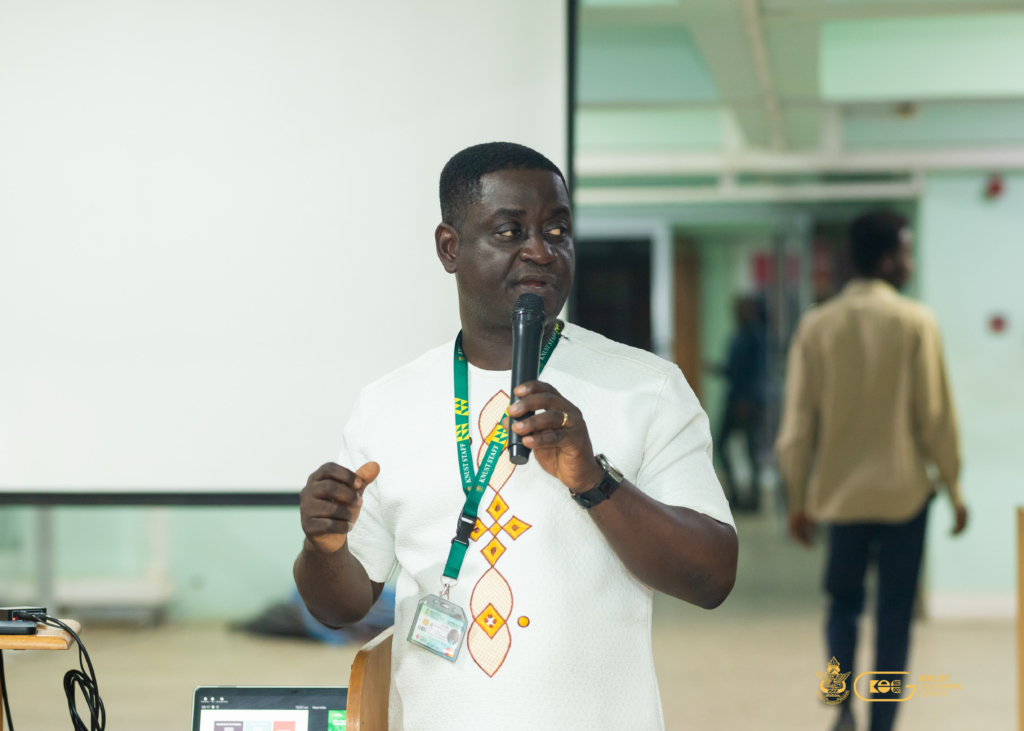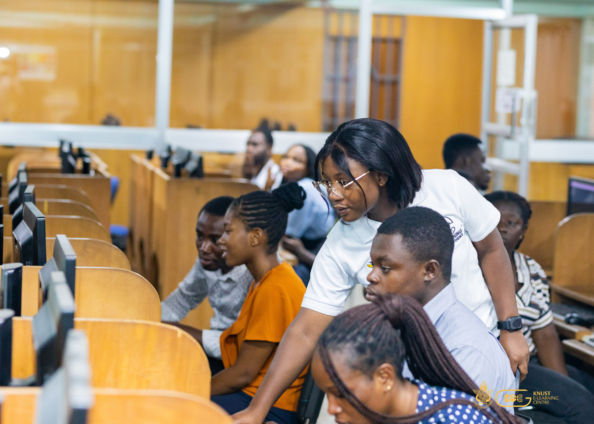Students in tertiary institutions worry face to face teaching is gradually becoming a drawback in accessing higher education.
Socio-economic background and geographical location have excluded some groups from learning in institutions offering exclusive in-person classes.
This is slowing down the progress of education.
In-person teaching and learning has been the traditional way of learning for decades.
However, as the student population increases in all tertiary institutions, lecturers and teaching assistants find it hard managing class sizes.
On the other hand, students disregard unfavorable weather conditions to attend lectures or submit assignments.
Both parties describe this as tedious and worrisome. Benedict Afriyie, is a student at the Kwame Nkrumah University of Science and Technology.
“In class, I am unable to hear the lecturer. Usually, the lecturers do not use microphones. Sometimes, the class is so huge you will not find a sitting place. There are times we walk all the way from our hostels to submit assignments,” he revealed.
Tertiary institutions struggle with space for lessons. Emmanuella Gidi, a student lives farther from the university.
She reveals some of her colleagues have missed examinations and class hours due to change of venues for lectures.
“I live at Boadi and come to Kotei for lectures daily. It is quite a distance. I wake up early and rush is. Getting a shuttle from Boadi to campus is a struggle. My colleagues and I missed lectures a few times,” she said.
Frank Boateng Agyemang, a student, is intimidated speaking in front of a class of over 200 students
This has limited his interaction and opportunity for valuable feedback.
“Questions are asked and you will see the supposed brilliant students answering fiercely. This makes us question our intelligence,” he revealed.
The E-Learning Centre of the Kwame Nkrumah University of Science and Technology seeks to open up education to more people by offering online learning courses
The Centre is tutoring Teaching Assistants in the university on the usage of online platforms for teaching and learning.
“They are going to offer teaching assistance to students who may be familiar with online platforms. This means they must always be a step ahead,” said Professor Eric Appau Asante, Director of KNUST E-Learning Centre.

Latest Stories
-
Mobik Energy CEO raises alarm over Tarkwa’s disappearing rivers and environmental neglect
9 minutes -
Former Nigerian President Muhammadu Buhari dies in London
36 minutes -
Hard work, not betting, will secure your future -Mobik Energy CEO advises Tarkwa Youth
45 minutes -
GIA boss debunks claim payment misconceptions as ‘Street Insurance Campaign’ educates public
1 hour -
Asempa FM’s Ekosiisen supports renal patients with GHS100K, urges gov’t to absorb full cost of dialysis care
1 hour -
WAFCON 2024: We have ‘good options in attack’ – Bjorkegren backs Queens to improve goalscoring
1 hour -
Vice President convenes strategic stakeholder meeting on Women’s Development Bank
1 hour -
Bawumia visits Hawa Koomson after violent attack during Ablekuma North rerun
1 hour -
Bawumia visits assault victims in Ablekuma North rerun; pledges support
2 hours -
Mahama charges Transport Minister and Attorney-General to resolve unauthorised shipping charges
2 hours -
Mahama engages freight forwarders on 24-Hour Economy
2 hours -
NFFA elects Michael Kwetey Tetteh as its president
3 hours -
NPP outlines guidelines ahead of 2025 National Delegates Conference
3 hours -
Ken Ofori-Atta’s extradition: FBI clears first major hurdle – No witch-hunt
4 hours -
NDC executives deny involvement in rogue anti-galamsey taskforce
5 hours

